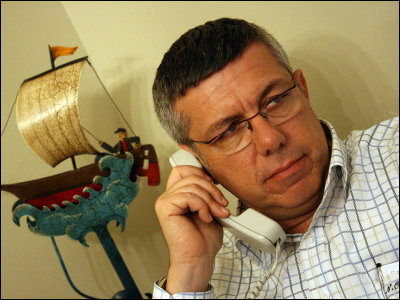International Advisory Committee Established to Strengthen Fault Resilience of Submarine Telecommunications Cables

The communication cables that run along the bottom of the world's oceans can be damaged by a variety of factors, including natural disasters, abrasion, fishing, and deliberate sabotage by third parties. On November 29, 2024, the International Telecommunication Union (ITU) and the International Cable Protection Committee (ICPC) established an international advisory body to meet on ways to prevent damage to undersea communication cables.
Launch of international advisory body to support resilience of submarine telecom cables

Undersea cable advisory board arises as cut cable repaired • The Register
In an increasingly interconnected world, undersea communication cables serve as the lifeline for the global digital economy, carrying more than 99% of international data exchange, allowing telecommunications, finance, cloud services and more to operate seamlessly across borders. However, undersea communication cables face a variety of sources of damage, from natural disasters to aging infrastructure and accidental human activities such as fishing and anchoring at anchor.
According to the ITU, damage to submarine communication cables not only affects industry and government operations, but also makes it difficult for individuals to access education, medical care and financial services. The ICPC reports that in 2023, an average of 150 to 200 or more submarine communication cable repairs were carried out each year around the world, which means that cables are damaged three times a week.
'As dependency on stable, high-speed internet grows every day around the world, the resilience of these cables is of utmost importance. A multi-stakeholder dialogue with governments, regulators, industry leaders, submarine cable experts and international organizations is essential to enhance the resilience of submarine cables to safeguard the digital future and stability of the global economy,' the ITU said.

The International Advisory Body is aimed at facilitating dialogue and cooperation on potential ways and means to improve the resilience of submarine cables. The Advisory Body is made up of 40 members from the public and private sectors, including submarine cable operators, telecommunications companies, government agencies, maritime authorities, international organizations and UN agencies acting as advisors. It is co-chaired by Bosun Tijani, Minister of Communications, Innovation and Digital Economy of Nigeria, and Sandra Maximiano, Chairman of the Board of Directors of the Portuguese National Telecommunications Agency.
'The establishment of this International Advisory Body with the ITU marks another step forward in protecting our global digital infrastructure. By working with the ITU we can advance best practice, foster international cooperation and produce a consistent approach to protecting the vital subsea communications cable networks that underpin global connectivity,' said ICPC Chairman Graham Evans.
'Subsea communications cables are essential for the functioning of our connected world, but they face risks that require concerted and proactive action,' said Tijani. 'This initiative underscores the commitment of the international community to strengthen these networks and advance international cooperation for digital resilience,' said Maximiano.
The advisory body will meet at least twice a year and consult with experts in telecommunications, digital resilience and infrastructure development to provide strategic guidance. The body's first meeting is scheduled to take place in Abuja, Nigeria in late February 2025.
At the same time as the establishment of the advisory body, an incident occurred in which an undersea communication cable laid in the Baltic Sea was cut by someone, but ITU and ICPC did not clarify the relationship between this incident and the establishment of the advisory body.
Investigators suspect that the Chinese vessel Yipeng-3 intentionally dragged its anchor for more than 160 km to cut undersea communications cables in the Baltic Sea, possibly on Russian orders - GIGAZINE

Related Posts:
in Note, Posted by log1r_ut







